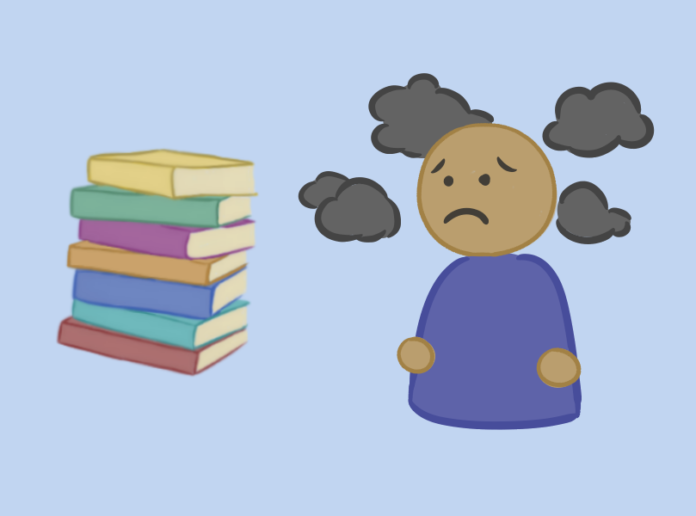UC Davis students reflect on what drew them to their majors
By JULIANA MARQUEZ ARAUJO — features@theaggie.org
The duration of college, however long it may be for each individual, is a tedious journey through students’ exploration of their careers. Throughout this time, students may doubt if the direction they are heading is the right one for them. Countless students find that with each class and professor, their passion for their major only grows.
Inversely, numerous students decide to change their paths; in fact, about 80% of students change their majors at least once during their time in college.
When an interest or hobby turns into a career goal, multiple factors may play into the loss of passion for that certain interest.
First-year music major Chris Meza said that he has questioned his career goal.
“I was actually so worried about that when I first decided to stick with music,” Meza wrote through an Instagram direct message. “But I think because I chose [music] as my major, I only found it more interesting and enjoyable because I was able to take classes that really piqued my interest instead of becoming bored with it.”
A large factor in the process of a student’s educational journey is the confidence they gain from the classes they take. The ability to be offered various options to complete a major requirement gives students the freedom to experiment with classes that appeal to them most. For others, however, past experience helps build their motivation.
Second-year education studies graduate student Sabrina Aragon said she was deeply involved in school ever since she was young when her interest in teaching began.
“I have really just admired teachers for the longest time,” Aragon said.
Aragon shared her progress in honing her passion in a professional setting.
“[College] has allowed my passion to grow because I have been able to see how impactful it is to be in a position where I can help others also grow and love education, too,” Aragon said.
While Aragon was fortunate enough to view college as a place that has allowed her to explore her inspiration, she said there remains a large percentage of students who change their major, and ultimately, the direction they want their futures to head.
Grayson Tess, a first-year sustainable agriculture major, discussed the presumed hierarchy system within college majors.
“I feel like it’s a bit strange that you have to declare a major immediately,” Tess said. “I know that there’s an undeclared option but it is pretty far down there; it kind of sets a pressure to declare a major.”
Tess also highlighted the societal pressure on students to define their futures by declaring a major, but simultaneously asking them not to linger on indecisiveness.
“There is a thing within college and even without it — a pressure from people around you of, ‘You need to figure out what you’re doing with your life,’ and college is the place to figure it out, ‘But you shouldn’t be figuring it out for too long,’” Tess said.
Tess shared that their extensive planning before entering university contributed to their successful experience with their major.
“In junior year, one of the topics for debate was whether organic agriculture should be implemented more, and I had a more fun time than I usually do doing that research, so I was like, ‘Oh, maybe I should look into this,’” Tess said.
They said that for months they focused extensively on a project centered around using algae as an alternative protein source, which caught their interest.
“I kind of always knew that I wanted to do environmental science, and I think I especially knew that it was probably going to have to do with something like plants,” Tess said. “I felt for a while that a lot of sciences can be very disconnected with dealing with people, and after doing that project and seeing more real-world impacts, I felt that agriculture wasn’t going to be totally isolated.”
Students with majors that can lead them to emotionally intense jobs may have doubts for contrary reasons, such as ensuring their mental stability to handle the potentially jarring scenarios that come with their desired careers.
For example, Carol Rodriguez, a fourth-year psychology major, shared that social work can be intense and even triggering for those working in the profession.
“There’s a couple of friends I know that work with kids specifically and [their] mental health, so seeing [the kids] struggle through it is like, ‘Whoa, that hurts,’” Rodriguez said. “It is something that is difficult but very rewarding because it is something that can help people [and] save people too.”
Rodriguez chose her major due to a personal connection with mental health.
“I am more interested in the mental health aspect of [psychology] and helping people with clinical stuff as well, since that’s something that I struggled with before,” Rodriguez said. “So I wanted to learn more about it and understand more about myself.”
Personal connections and hobbies may be the initial interest within many students’ majors, but the goal of college is to explore multiple fields so that eventually students may find themselves on the path best fit for them if they are not on it already.
“College is just some extension for trying new things and figuring out what you like and what you’re good at,” Tess said. “Putting pressure on yourself to pick a major you may not be connected to isn’t always the right decision. It’s okay to take your time to choose.”
Written by: Juliana Marquez Araujo — features@theaggie.org





